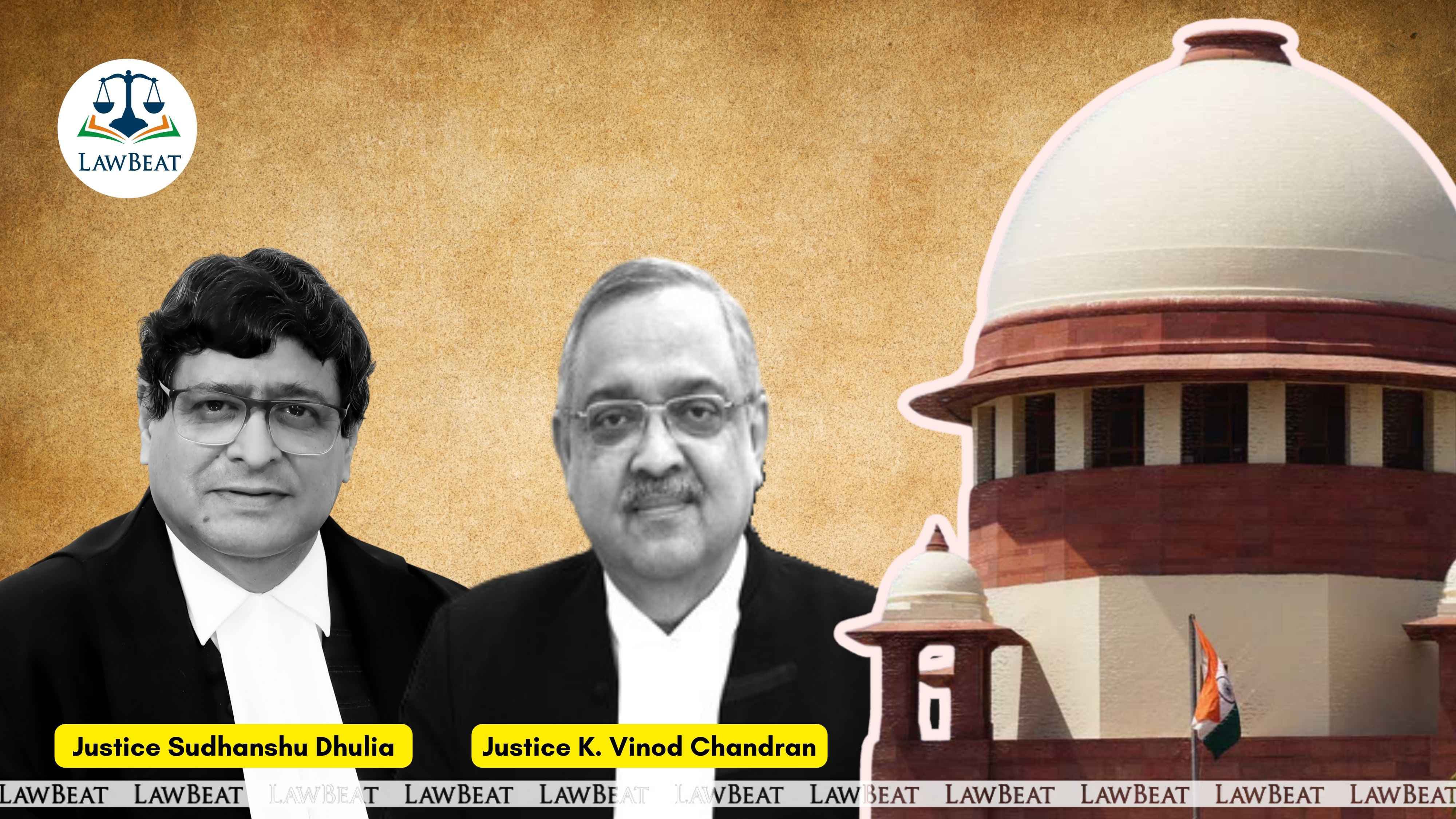No question of presumption under PC Act if demand of bribe not proved: SC

Court acquitted two accused officials in a bribe case, stating that the prosecution failed to establish the bribe demand beyond reasonable doubt
The Supreme Court has said that a presumption under Section 20 of the Prevention of Corruption Act can apply only when there is direct evidence of the demand and acceptance of a bribe against a public servant.
A bench of Justices Sudhanshu Dhulia and K Vinod Chandran allowed an appeal filed by Madan Lal, an enforcement officer, and another person, an office assistant in the Rajasthan government's supply department, and acquitted them on the ground that the prosecution had not established and proved the allegation of demand and acceptance of a bribe by the accused beyond a reasonable doubt.
"On an examination of the entire evidence, we are of the opinion that the prosecution has failed to establish beyond all reasonable doubt, the demand for a bribe and its acceptance, in a trap laid by the trap team of the ACB. In that circumstance, there is no question of a presumption under Section 20 arising in this case," the bench said.
Both the accused were sentenced under Section 13(i)(d) read with Section 13(2) to rigorous imprisonment for one year and a fine of Rs 1000, with a further sentence of imprisonment for six months under Section 7(2) of the Act, also with a fine of Rs 1000, with default sentences for failure to pay the fine.
It was alleged that the accused demanded a bribe from a complainant for processing his application for a license to carry on the sale of food grains and edible oils. The accused were allegedly arrested following a trap laid by the Anti-Corruption Bureau.
The counsel for the accused contended that the demand was not proven in the case since the statement of the complainant had many inconsistencies and differed considerably from the complaint. The demand was unbelievable, especially since the accused had, on the very same day of the inspection, recommended the issuance of the license, which, even according to the complainant, was handed over to him at the venue of the trap, simultaneous to the trap.
They claimed the money was thrust upon them and that in the scuffle, some currency notes were scattered on the floor, which the police team, who entered the room, directed the accused to pick up. Therefore, no reliance could be placed on washing the hands and dress of the accused with the test solution. There was no demand or acceptance coming from the evidence led, they argued.
The Government counsel asserted that the trap proceedings successfully caught the accused red-handed. The demand was spoken of by the complainant, and all the official witnesses spoke of the receipt of the money, which was further validated by the test solution turning pink on washing the hands of the accused and their dress.
The accused has failed to rebut the presumption under Section 20 of the Act, especially when the demand and acceptance of the bribe are unequivocally proved. The concurrent findings of the courts below do not warrant any interference, the counsel said.
In the complaint, the court noted the allegation was that the accused, when he came for inspection at the shop, demanded an amount of Rs 200 for approving maps, etc., and also spoke of the necessity to give money to the concerned clerk.
The complainant visited their office where the accused demanded Rs 500; however, on request, he agreed to settle for Rs 400. The complainant agreed to pay the amount the very next day, i.e., June 30, 1994, and straightaway approached the ACB. During the deposition, the complainant, however, stated he was not sure of the amount demanded.
"We have given anxious consideration to the evidence led. There are glaring inconsistencies insofar as the amount of money demanded...The discrepancies raise serious doubts as to the demand having been made," the bench said.
The court noted two independent witnesses, who accompanied the trap team, stated they had not seen the transaction of money. An employee of the district supply office, examined as a witness, also turned hostile. He spoke of the scuffle that ensued when the complainant tried to thrust the money into the pocket of the accused.
"On an examination of the evidence, there is considerable doubt raised in our mind, which qualifies as reasonable doubt, as to whether there was acceptance of bribe amounts by both the accused," the bench said.
The court thus set aside the conviction and sentence of the accused as brought out by the trial court and affirmed by the high court.
Case Title: Madan Lal Vs State of Rajasthan
